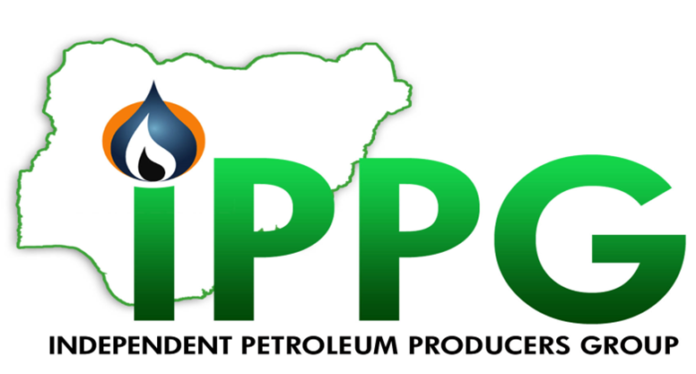Oil producers kick against forced sale of 460,000bpd crude to Dangote Refinery, others
CHIGOZIE AMADI
Oil producers, under the aegis of the Independent Petroleum Producers Group, have warned against being forced to sell crude oil to the Dangote Petroleum Refinery and other local ones in Nigeria.
The IPPG produces about 30 per cent of Nigeria’s crude oil, according to the Nigerian Upstream Petroleum Regulatory Commission.
The latest crude oil production data from NUPRC showed that Nigeria’s total production (both crude and condensates) was 1,533,698 barrels in July. When 30 per cent of this figure is calculated, the IPPG should be producing about 460,000bpd of crude.
The IPPG also called on the Nigerian National Petroleum Company Limited to re-direct its allocated crude oil volumes to Dangote refinery and other local refineries to mitigate the current crude supply shortage being experienced by the local refiners that is impacting local product availability in many parts of Nigeria.
The Chairman of IPPG, Abdulrazak Isa, in a letter dated August 16, 2024, and addressed to the Chief Executive of the Nigerian Upstream Petroleum Regulatory Commission, Gbenga Komolafe, said NNPC should utilise its allocated 445,000 barrels per day intervention crude oil volume to salvage the current situation as it did in many instances in the past.
Isa said some IPPG members already owned and/or were supplying crude oil to local refineries.
He insisted that NNPC was in a good position to mitigate the current crude supply shortfall faced by local refiners by leveraging its statutory crude allocation to meet local domestic consumption.
“Historically, NNPC has always had an intervention crude oil volume (445,000bpd) meant to satisfy the nation’s domestic consumption. This volume has always been used under various swap mechanisms to import refined products for domestic consumption.
“Since there is now domestic refining capacity to meet consumption, this dedicated volume should be reserved for all domestic refineries under a price hedge mechanism that can be provided by a suitable financial institution such as Afrexim Bank,’’ he stated.
Isa, however, maintained that “Any national production above this allocated volume should be treated strictly as export volumes, adhering to the willing-buyer, willing-seller framework of the international market especially since the refiners will need to export excess products that surpass domestic demand, thus boosting FX (foreign exchange) earnings.’’
The group expressed concerns over certain recent developments, including the domestic crude oil refining requirements and crude oil production forecast for the second half of 2024, announced by NUPRC, as well as the request to all producing companies for their monthly quotations for crude oil supply to licensed refineries in Nigeria.
Specifically, IPPG said some of its members had received letters from the Dangote Refinery for crude supply nominations for October, and faulted the approach as bringing them under an obligation, saying it conflicted with the spirit of the willing-buyer, willing-seller framework prescribed by the Petroleum Industry Act 2021.
He asserted that the objective of enhancing the country’s petroleum value chain should be done within the confines of the law and existing obligations.
He expressed confidence that an amicable solution could be reached by all stakeholders without jeopardising the existing commercial agreements, economic interests, and business models of each segment of the oil and gas sector.
“While we fully support and commend the efforts of Nigerian entrepreneurs to enhance domestic refining capacity, it is important that no private sector business is unduly pressured into arrangements that may effectively subsidise another within the oil and gas value chain under any guise whatsoever.
“Under this willing-buyer, willing-seller framework, it is essential for refiners to negotiate and execute long-term crude oil Sales and Purchase Agreements with producers and their marketing agents. These agreements should follow industry best practices, with typical tenures ranging from one to five years,’’ the IPPG chairman said.
He added that some of them had also received allocation letters from NUPRC for the supply of specific volumes of crude oil to the domestic market for the second half of 2024, expressing concerns about its potential implications for the economy, especially the foreign exchange earnings through royalties and taxes.
The group noted, “We understand that the current allocation methodology appears to be based on a matrix of production forecasts by producers, issued technical allowable rates as well as crude oil requirements of domestic refineries, rather than actual local consumption needs. This raises significant concerns as it suggests that allocations are being determined based on the demands of refiners, which may exceed what is needed for domestic consumption.
“Such an approach could lead to inefficiencies and unfairly disadvantage producers. Therefore, refineries with excess capacity beyond local consumption mustn’t exploit the Domestic Crude Oil Supply Obligations to the detriment of oil producers and other stakeholders, including the Government.’’
Isa called for transparency in how the allocations to oil producers were determined and requested NUPRC to provide clear details on the allocation criteria and methodology, while he sought an opportunity for IPPG to make input into the production forecast to ensure it accurately reflects operational realities.
The NUPRC did not respond to enquiries when contacted to react to the position of the indigenous crude oil producers.
The PUNCH recalls that Dangote and other local refineries have repeatedly accused international oil companies of not selling crude to them.
President Bola Tinubu later directed the NNPC to sell feedstock to the local refineries in naira
On Monday, the Federal Government announced that the deal would commence in October.
The Publicity Secretary of the Crude Oil Refiners Association of Nigeria, Eche Idoko, told our correspondent last week that a meeting was held to that effect.
Modular refiner worry
Meanwhile, the crude supply crisis in Nigeria took a new twist on Tuesday as the owners of modular refineries warned the Federal Government against ignoring them while selling crude oil to the Dangote refinery.
This is coming following an announcement by the Minister of Finance and Coordinating Minister of the Economy, Wale Edun, on Monday that crude sales to the Dangote refinery would start in October.
Edun had presided over a crucial meeting of the Implementation Committee on Crude Oil Sales in Naira.
The Executive Chairman of the Federal Inland Revenue Service, Zacch Adedeji, who is also the Chairman of the Technical Sub-Committee, reported that the first PMS delivery from Dangote is expected in September under existing agreements.
However, the Publicity Secretary CORAN, Idoko, expressed concerns that the Federal Government had sidelined modular refineries in the arrangements.
Though he commended the Federal Government for the decision to sell crude to the 650,000 Dangote refinery in naira, he told The PUNCH in an interview that Dangote was not the only refinery in Nigeria.
“The decision of the Federal Government to start selling crude to Dangote in October is welcomed, but I worry that the government has exercised fear of Dangote becoming a monopoly, and now it has always created a scenario for the emergence of a monopoly.
“We have over time reiterated that we have more than just one refinery in Nigeria. Dangote is not the only refinery, albeit the biggest, largest, but then, there are other smaller refineries, and we thought that whatever good gesture is extended to Dangote should be extended to all.
“We have made this clear in most of our communications, but I think the Federal Government is still making the same mistake,” Idoko stressed.
====== PUNCH ======

























